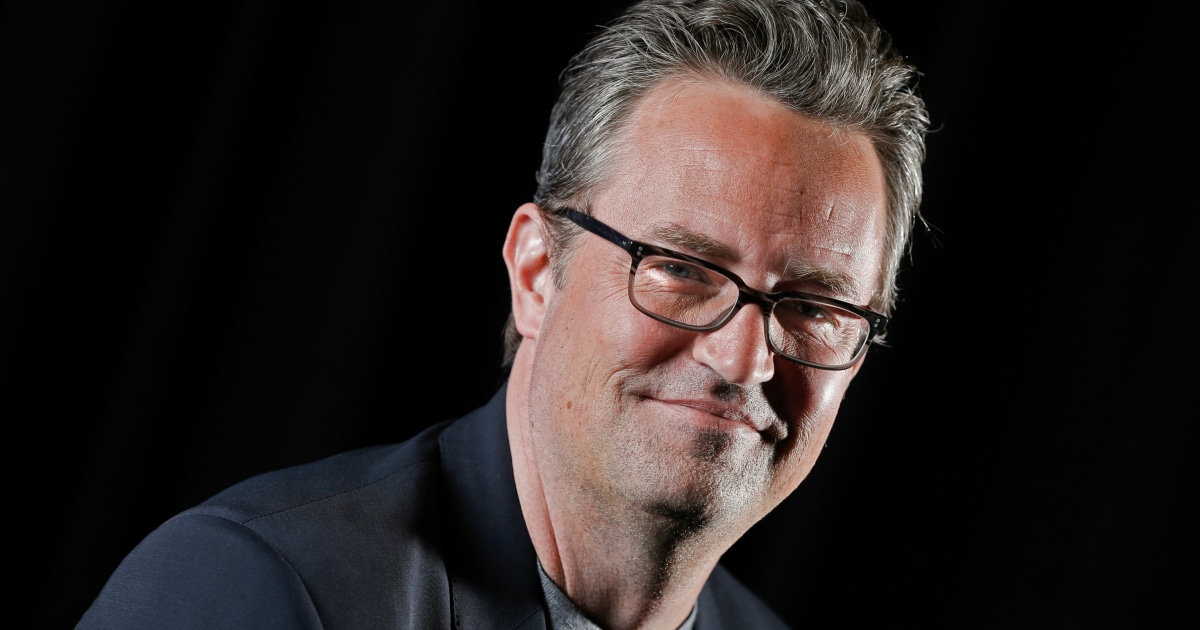The cooperation of Dr. Mark Chavez, who has agreed to a plea deal in the criminal case stemming from actor Matthew Perry’s fatal ketamine overdose, could help federal prosecutors in California make their case against Dr. Salvador Plasencia, the other doctor who’s been charged.
Plasencia is indicted alongside Jasveen Sangha, whom prosecutors say is also known as “the Ketamine Queen.” Both have pleaded not guilty.
A total of five people have been charged, including Chavez and two others who have already pleaded guilty: Erik Fleming, who admitted to distributing the ketamine that killed Perry, and Kenneth Iwamasa, the actor’s live-in personal assistant.
Fleming admitted that he got the ketamine from Sangha and distributed it to Iwamasa. Prosecutors said that Iwamasa conspired with Sangha, Fleming and Plasencia to obtain ketamine illegally and provide it to Perry, and that Iwamasa admitted to repeatedly injecting Perry with the powerful anesthetic without medical training, including multiple times on Oct. 28, 2023, the day the “Friends” actor died.
In his plea agreement, Chavez admitted to selling ketamine to Plasencia, and prosecutors say he obtained more of the drug for Plasencia by making false representations to a wholesale ketamine distributor and by submitting a fraudulent prescription in the name of a former patient without that patient’s knowledge or consent.
A review of the indictment shows how prosecutors might use Chavez to help make their case against Plasencia. One of the more damning allegations refers to text messages between Chavez and Plasencia in which Plasencia discussed how much to charge Perry for ketamine, stating: “I wonder how much this moron will pay” and “Lets find out.”
While such evidence speaks for itself and can easily turn a jury against a defendant, having Chavez on the stand to narrate their conversation and speak to the broader alleged conspiracy could strengthen the government’s hand at trial. The indictment references multiple communications and actions between the two doctors, for which Chavez could set the scene and fill in any details.
NBC News reported that a federal judge on Friday accepted Chavez’s plea agreement, and that his lawyer said he has already entered into an interim suspension of his medical license that sets up a surrender of it later. “My client wants to do the right thing,” the lawyer, Matthew Binninger, reportedly said. “He’ll be cooperating going forward.”
If that cooperation includes trial testimony, defense lawyers would have fodder for cross-examination, as happens in any case with cooperating witnesses. In addition to the incentives that Chavez has to help the government, that he engaged in not only criminal behavior but fraudulent behavior is something else that the defense could focus on. However, to the extent that Chavez’s testimony would be corroborated by other evidence, such as text messages, there may be only so much that defense lawyers could do.
To be sure, it’s early yet in the recently charged case, and the remaining defendants could plead guilty as well. Relatively few cases go to trial. Their lawyers would at least discuss the possibility with them, especially in the face of such potentially damning evidence in a high-profile case.
Subscribe to the Deadline: Legal Newsletter for updates and expert analysis on the top legal stories. The newsletter will return to its regular weekly schedule when the Supreme Court’s next term kicks off in October.


Leave a Reply